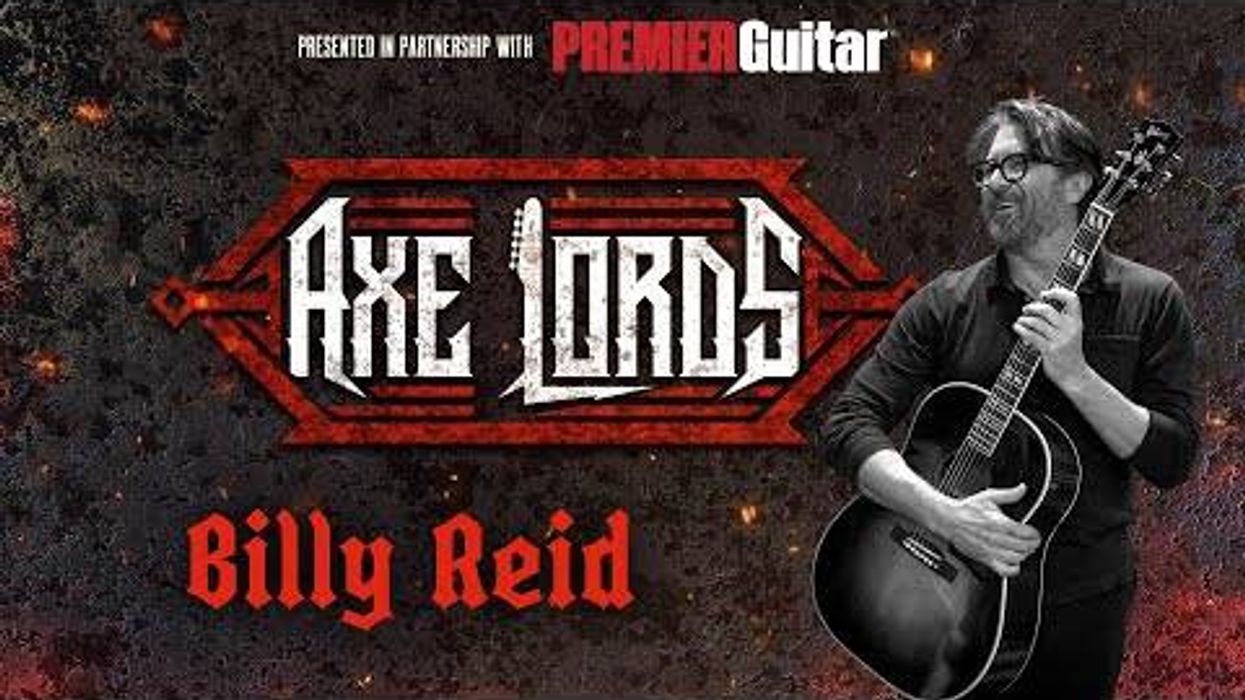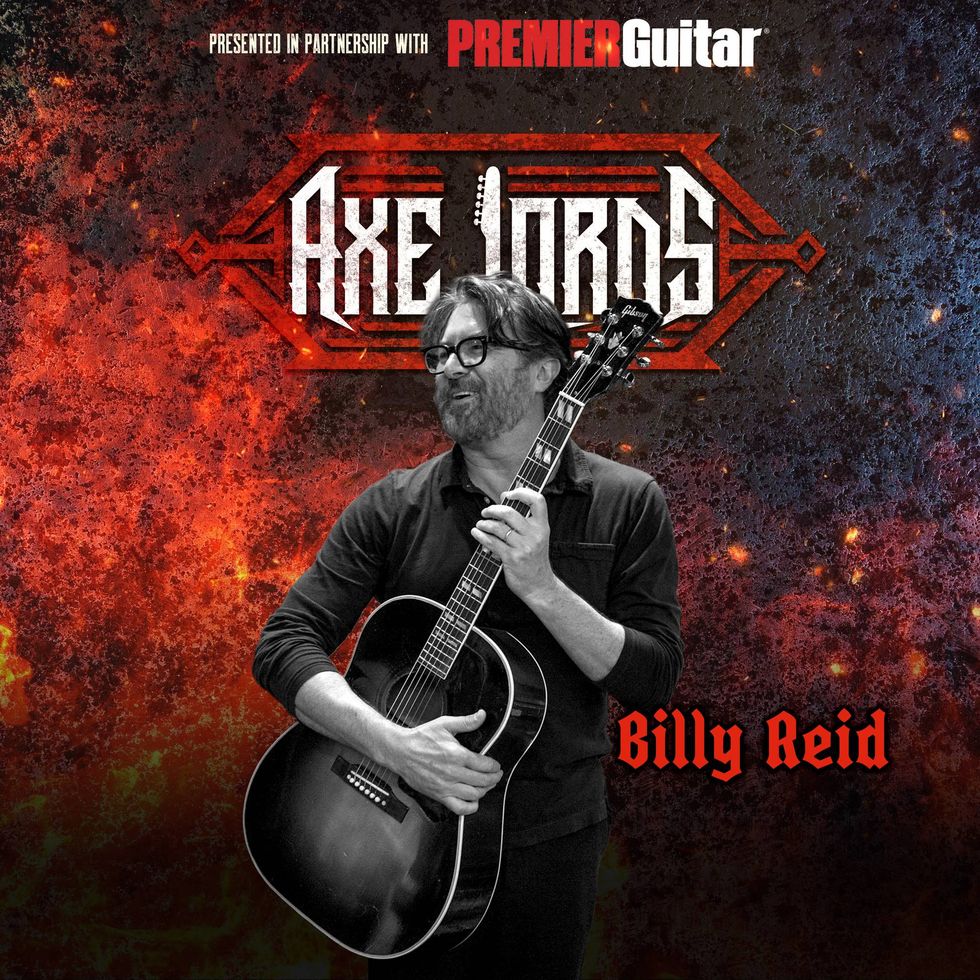“I realized, holy shit. I've never done this before." Jedd Hughes is still buzzed about not only rocking a packed house at Nashville's 3rd and Lindsley but doing so with … a string quintet. The added textures augmented Hughes' working band with lush soundscapes that gave the tunes a bit of a movie soundtrack vibe. “It worked beautifully," says Hughes. “Everybody just tamed their velocity a bit and I had to be really conscious of sticking to the arrangements."
Those arrangements on his new album West don't directly deal with the long journey Hughes took from the Australian countryside to Nashville, but you can hear the work he put into it. “Thinking About You" is a jaunty pop-rock tune buoyed by a bouncy string arrangement that meshes with drummer Matt Chamberlain's propulsive beat. Out of nowhere, Hughes appears with an introspective fuzzed-out solo that brings to mind a subdued Billy Gibbons lead.
Each of the tracks on West not only tell a story but have a story behind them. A late-night acid trip in Vegas gave inspiration to the instrumental title track, while the magic of an afternoon collaboration with singer/songwriter Sarah Buxton on “God Washed Up" was so special, Hughes decided to keep the “work tape" recorded shortly after the song was finished. (Listen closely and you might even hear Buxton's newborn in the background.)
Even Hughes is amazed this music made it out into the world. It had been 15 years since his last solo album, 2004's Transcontinental, and although he saw minor success, Hughes nearly became another music industry statistic. He was passed around a few times as various labels merged with each other leaving him quite disillusioned with the whole idea of being an artist. Hell, there's an entire album with Tom Petty drummer Steve Ferrone that has yet to see the light of day.
Watch the video for “Animal Eyes," from Jedd Hughes' new album, West.
But the material on West comes from a different place. Collaborations with Parker Millsap and mentors Guy Clark and Rodney Crowell gave Hughes the time to allow the music to come to him. “Getting to this point kept me up at night," he says, “just trying to figure out how to write and record music that felt like me." We caught up with Hughes while on tour with Vince Gill to discuss his love of bluegrass music, tweed amps, and why you should never give up on yourself.
When you moved from Australia to rural Texas for college, how different was the culture for you?
I'm from a tiny town outside of Adelaide, called Quorn, which is just a little farming town of 800 people. Funnily enough, flying into Lubbock and looking out the window I was thinking, “This is not that dissimilar from the desert in South Australia." I'll never forget that. I told Guy Clark this story—we actually wrote a song about it—where I landed in Lubbock and saw a guy with a machine gun strapped to his chest at the airport, a security guy. I was like, whoa, we don't see that at home.
What were the big lessons you took away from your college experience?
It was the first time I really got to play bluegrass music in an ensemble. I had some friends that played bluegrass in Australia, but it's not a very popular thing down there. When I went to college, I was really looking forward to meeting other people my age that were as passionate about playing bluegrass, country, and whatever else, as I was. All I did for a year and a half was just play music. They had some great audio engineering programs and I had a real curiosity about recording. So, I threw myself into those classes and the ensemble classes. Alan Munde, who I knew was a great banjo player, taught me a lot. He had a really great background in jazz guitar and introduced me to a lot of players I hadn't heard of, like Jimmy Raney, Lenny Breau, and Ted Greene. He showed me what was going on inside of those chords. It was like, “Oh my god, there's a whole other planet in there."
In Australia, who were some of the early country guitarists you listened to?
I listened to Albert Lee a lot. Then there was Danny Gatton, Vince [Gill], and Clarence White. It was a bit harder to get the Clarence White stuff, but I found bits and pieces. If it sounded like a Telecaster and country guitar, I would geek out.
As you were discovering all this new music, was there a point where everything just clicked?
Yeah, the first time I got that thrill was playing the intro and solo for “Folsom Prison Blues." I was probably like eight years old and my dad and I sat down and figured it out. He helped me stop the tape, hum the notes, and try to find them on the fretboard. He really taught me how to listen like that. After that I thought, “Holy shit. This is fun."
You left college early. What prompted that?
In college I met Terry McBride, who came down from Nashville. He was a friend of one of the other teachers at the school, Steve Williams, and Steve, unbeknownst to me, called Terry and told him about me. Terry was getting into producing and he came down to the college to give a workshop. We hit it off and became mates and stayed in touch. He asked what I was going to do after college, and I said my plan was to either go to Austin or Nashville. I didn't know anyone in Austin, and Terry was the only person I knew in Nashville. Terry offered to write songs with me and introduce me to other writers. I was hoping to get a gig to pay some bills, so I thought that might be as good of a start as any.
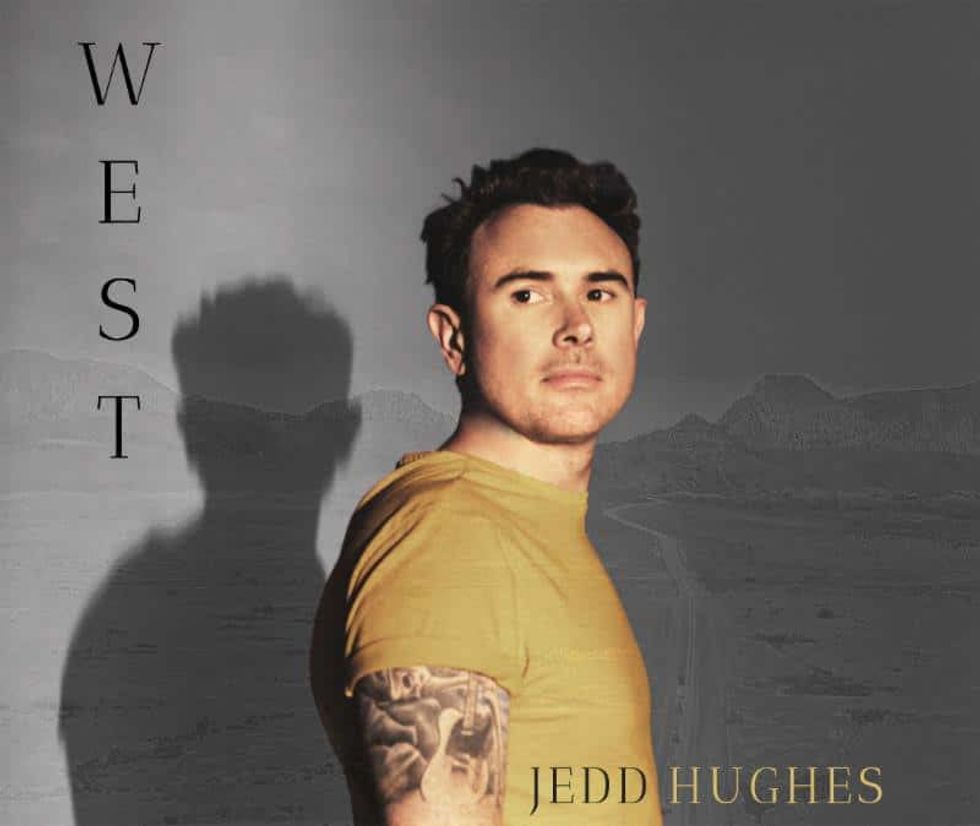
TIDBIT: Famed studio drummer Matt Chamberlain contributed to several tracks on West. “Both 'Animal Eyes' and 'The Dreamer' were tracked live with just me and Matt," says Hughes.
At that point did you think you were going to make a living more as a songwriter than a guitarist?
I got signed to MCA when I moved to Nashville, and my goal when I came here from Australia was to be an artist like Eric Clapton, or Mark Knopfler, or Vince Gill. I wanted to write my own songs, play my own guitar solos, and get out there and sing them with a kick-ass band. I got a record deal. I mean, everything was just falling into place, man. It was amazing. Even down to the fact that all my favorite artists were on MCA.
Then it just came crashing down. I lost my record deal, my label merged with another label, and suddenly I was like, “Oh yeah. Reality." I had to survive by leaning on my skill set, which was being able to play guitar and write songs. Rodney Crowell took me under his wing. We kept writing songs and playing shows, and I got another record deal—this time with Capitol. I was really excited about that because I had some good friends working there. I made a record and Steve Ferrone flew in the play drums on it. It was his first session in Nashville, and he was playing on my record. But it never even came out. It got caught up in a bunch of political bullshit and I was just totally disheartened. For all I know, it could have been in that big fire in L.A.
After that fell through, did you take time to get your head straight before diving into another record?
A good 10 years to be honest. I was pretty disillusioned and disenchanted with trying to get my own music out. I just didn't know how to do it. I didn't know how to do it independently, and I was just tired. I was burnt out. I was giving everything to this process and feeling like I was getting nowhere. So, I decided to go play guitar for people and I threw myself into the session world. I was getting called more and more to work on sessions. I just thought at least most of these records are going to come out. At least I'll get to hear my guitar solo every now and then.
Jedd Hughes was first drawn to the guitar through Tele masters Clarence White, Danny Gatton, and his future employer, Vince Gill. “If it sounded like a Telecaster and country guitar, I would geek out," says Hughes. Photo by Libby Danforth
Did that keep you busy or did you still write songs on the side?
I just threw myself into the session trench because it felt safe and I could work with musicians I loved as people. They were my friends and there was a real camaraderie in the sessions, and I loved that. For three or four years, I was just working sessions every week and playing on records. It wasn't until Gary Paczosa, of Sugar Hill Records, called me up and said, “Would you come and write some songs with Sarah Jarosz?" That's when I really got back into writing. Eventually we won a Grammy for a song we wrote. And once we did that, I thought I could make my way back into my own music again. We did that for a year. And then I moved back to Nashville from L.A. with my wife and our brand-new son. About 18 months after that, I started working on this record.
Do you feel like you're a disciplined songwriter, or does it take having something on the calendar to get you into writing mode?
I'm disciplined in the fact that I'm always writing. It's a whole other discipline to make yourself sit down and say, “I got to come up with a body of work, or come up with a record," and give yourself a target and deadlines. That's a different discipline. You say to yourself “I know I'm tired, but it's 10 o'clock at night and I got two more hours. I could sit here in this chair and whittle away at this lyric."
Did you write the songs on West specifically for this album? Or were they nuggets you had lying around?
Some of them were old seeds like “Hollywood," which is one of the songs I wrote with Guy Clark years ago. I've been playing it forever. It was the second song we ever wrote together, and I always just loved playing that song. But most of the record, I'd say 85 percent of it, is stuff I just made myself sit down and write because I had to make a record.
I have to ask you about the solo on “Thinking About You." Where did that sound come from?
That's an old Guyatone fuzz—I've got it right here in front of me. It's called a Crazy Face. It's a really early one with this beautiful Hammerite green Fuzz Face-looking cover. I used that along with my '57 Tele through a Supro 1620 combo. It took me a couple of hours to get it right because I was trying to get this very specific thing, and getting the fuzz to react the right way, as you know, is kind of a journey. They are the most temperamental thing in the world. But I eventually got it and I felt pretty good about it. I didn't labor over that solo at all, man. I tried to get it really quick because I didn't want it to be too technical or anything. I was just more after the attitude.

Guitars
1992 De Gruchy Cutaway Exp
De Gruchy 45 Style D
Santa Cruz Tony Rice
1978 Takamine nylon string
1957 Fender Telecaster
1958 Danelectro U2
1962 Epiphone Casino
1964 Teisco Sharkfin K2-L
Jeff Senn Model One
1979 Greco EGF800 LP
1967 Hofner 500/1 bass
1966 Fender P bass
Amps
1959 Fender tweed Deluxe
1962 Supro 1620t
1959 Supro 1690t
Ebo Amps Del Rio
Effects
1978 Electro-Harmonix Memory Man
Guyatone Crazy Face
Durham Electronics Sex Drive
JHS Mike Campbell Calhoun
VFE Old School Tremolo
Empress Echosystem
Pioneer DJ mixer
Seymour Duncan KTG-1
The acoustic tone on “The Dreamer" is unique.
That's actually my first guitar—I got it when I was 8 years old. It was made by a luthier in Adelaide named Bryan De Gruchy. It's made of Australian blackwood and it has this really sharp cutaway. “West" has this crazy-high guitar part that you can only play on a cutaway. It's impossible to even play it on a regular dreadnought. I've tried. I got a million miles on that guitar.
It sounds like you really pieced this record together in layers.
Yeah, on “Killer" a lot of the guitar parts, pretty much all of them, I built by just fooling around with a loop. I just cut real drums, bass, and keys to the demo, and then kept all of the ambient guitar stuff. I always feel like I'm recording right up to the last minute, even while I'm mixing. You're never going to get it again the same way. I've talked at length about it with [producer] Jay Joyce and other engineers and producers. If you have it on the demo and you have the multitracks, you can always just make that stuff work, and I tried to do that as much as I could.
How did you get those textural guitar sounds on “Animal Eyes"?
I played a Jeff Senn Model One through a blackface Deluxe and a VFE Old School Tremolo. I recorded that during the live tracking with Matt [Chamberlain]. There might have been another electric that I added after the fact. I think there's one on the right speaker that's more heavily distorted. I had all intentions of re-recording it, but once I got home, I felt there was something about the way it feels with the drums that I probably shouldn't mess with, so we just added strings and I played some bass on it.
Was the string quartet the plan from the beginning?
I wanted it to be part of the record. After I finished writing “Animal Eyes," I was really interested to hear how strings would sound on it because I felt that could be a cool, dark treatment. I sent it and “The Dreamer" to [composer] Jordan Lehning with really no direction whatsoever. I got to the studio on the tracking day and heard the string arrangement the first time when they played it. I was like, “Oh my god. You totally get this." He was on the same page of painting, you know, the dark canvas, and understanding the major and minor relationship of that song. I felt like he knocked it out of the park.
Jedd Hughes is a bluegrass kid at heart. “In high school I was totally immersed in Tony Rice and Bryan Sutton," says Hughes. That love motivated him to move to Texas and study bluegrass guitar in college. While in his native Australia, he befriended luthier Bryan De Gruchy and acquired this 45 Style D. Hughes now owns several guitars built by the late De Gruchy.
It sounds like West was both creatively and logistically quite the process.
Yeah, because I'm always working on music and writing. After things went south of few times with record deals when I first moved to Nashville, I felt like I was going to put that side of my creativity away for a while because it didn't seem to be panning out. I was having an easier time just working with other people on their records and writing and touring with others.
But ultimately, I figured out what was really keeping me up at night. It was the fact that I needed to figure out how to make my own musical statement. Something that felt genuine to me and something that felt fulfilling and interesting musically. I had to really make myself sit down and write these songs and work on them, both lyrically and sonically, and come up with a recipe to showcase them. I think I did that.
Armed with his De Gruchy 45 Style D, Jedd Hughes picks an intricate fingerstyle pattern on “The Dreamer" from West. This stripped-down version puts the focus squarely on Hughes' A-list chops, which have led him to pick with everyone from Sarah Jarosz and Ryan Bingham to Vince Gill and Rodney Crowell.


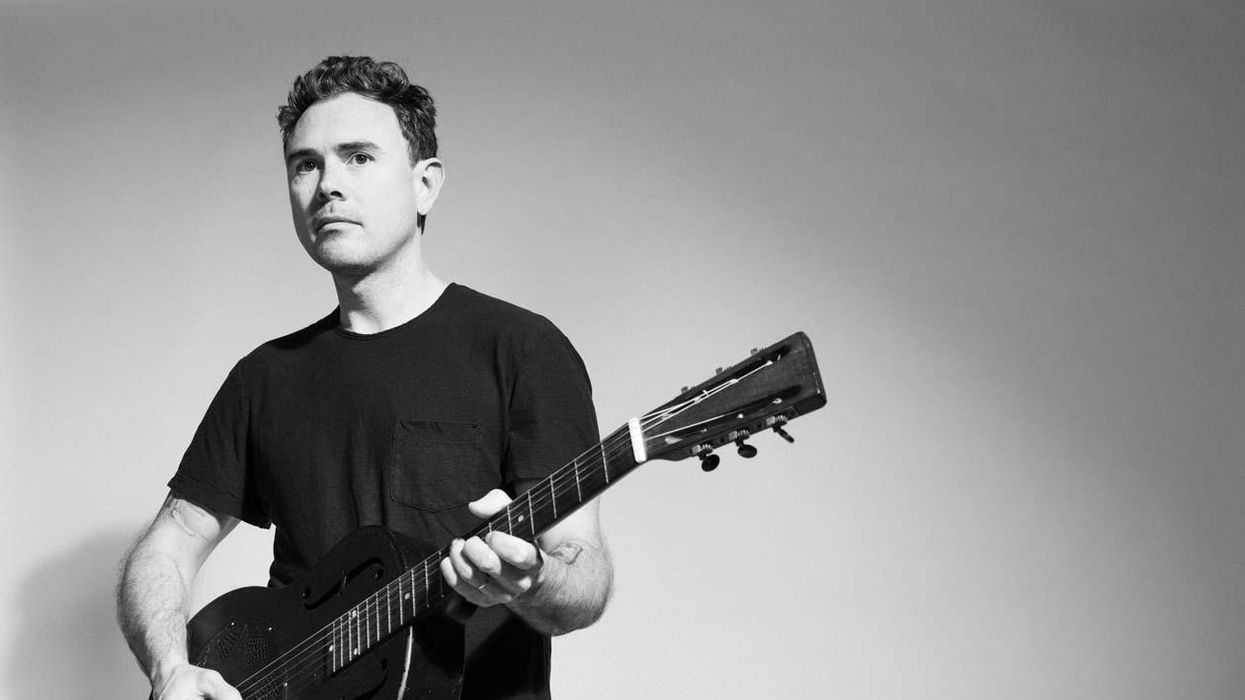

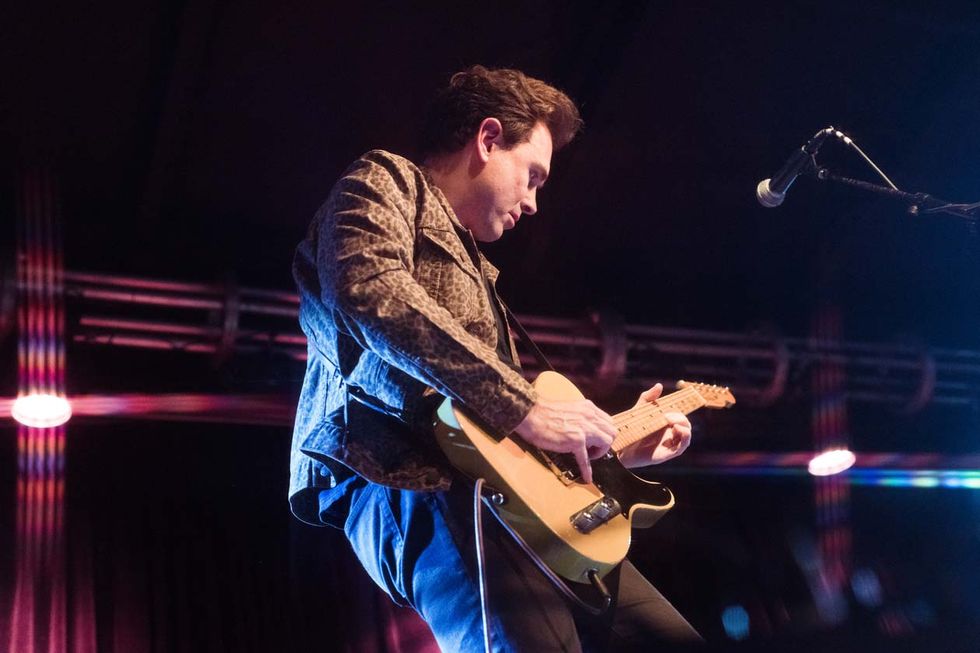
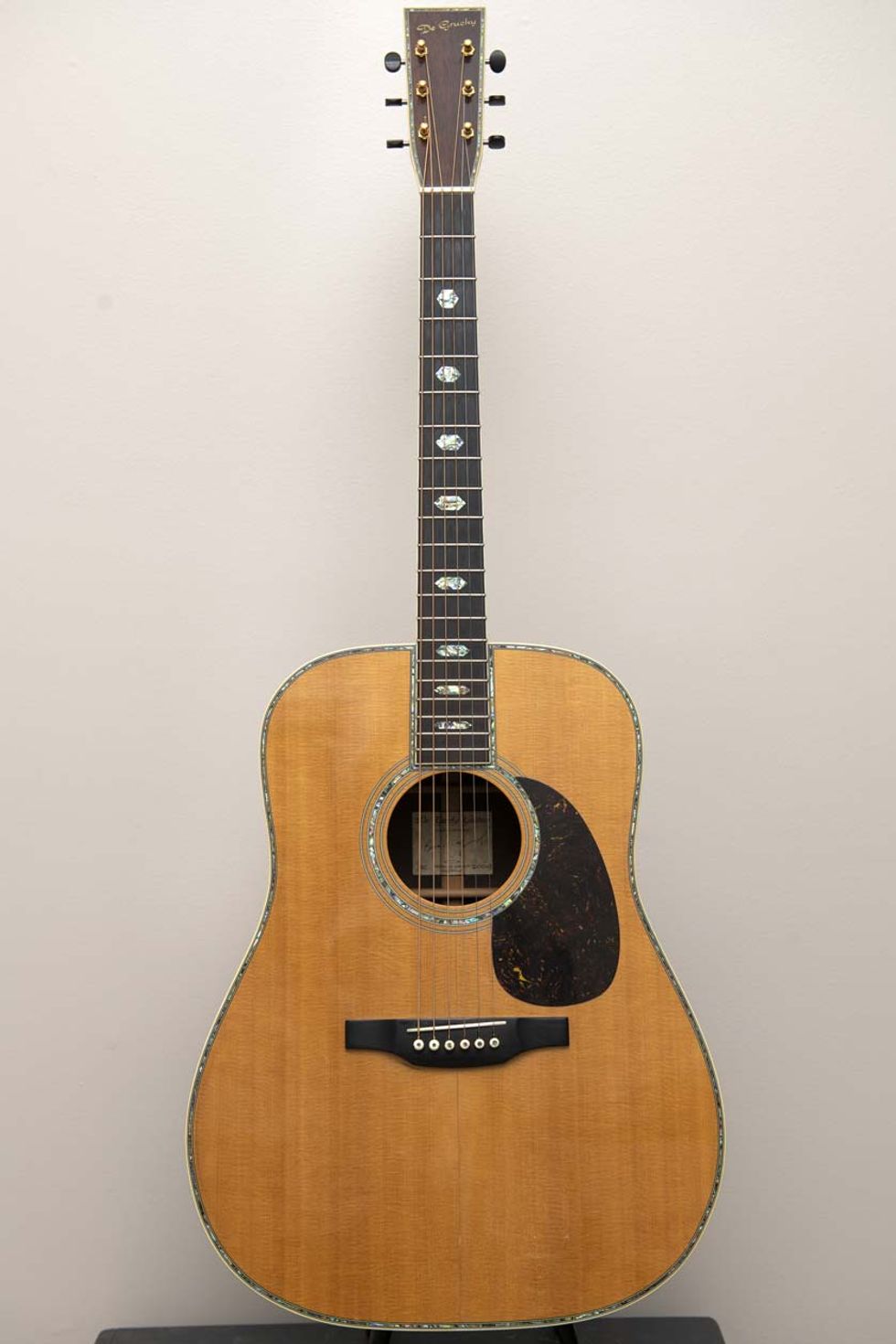






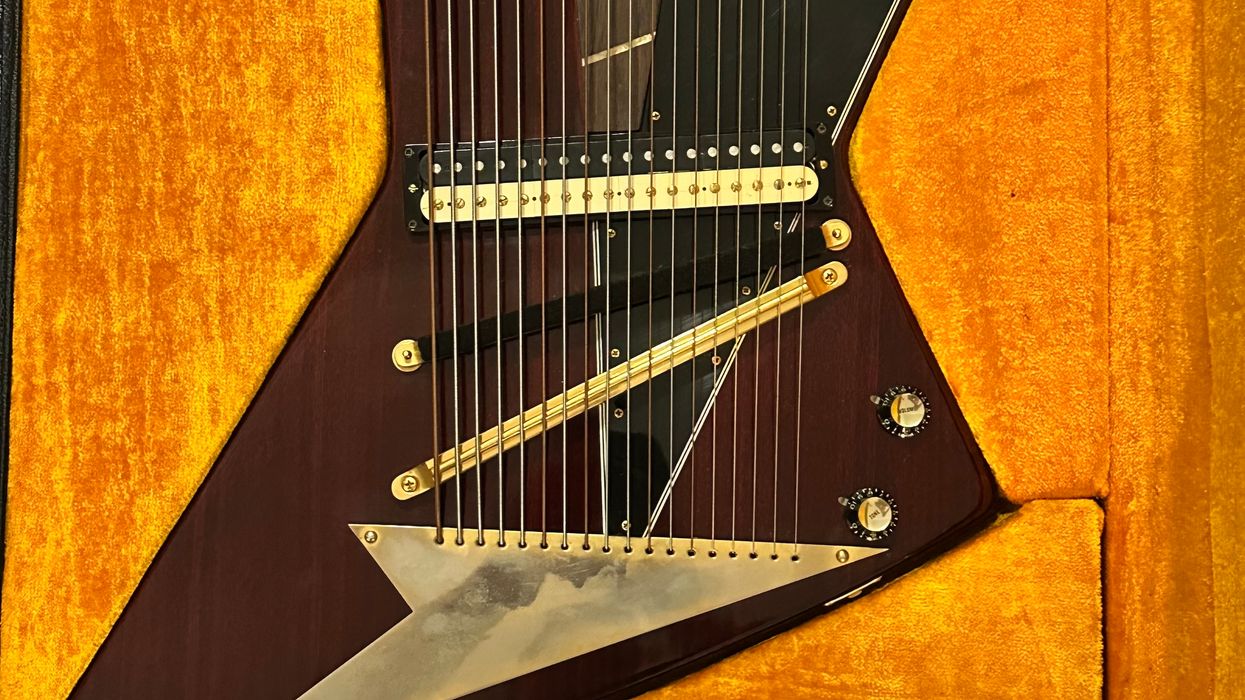
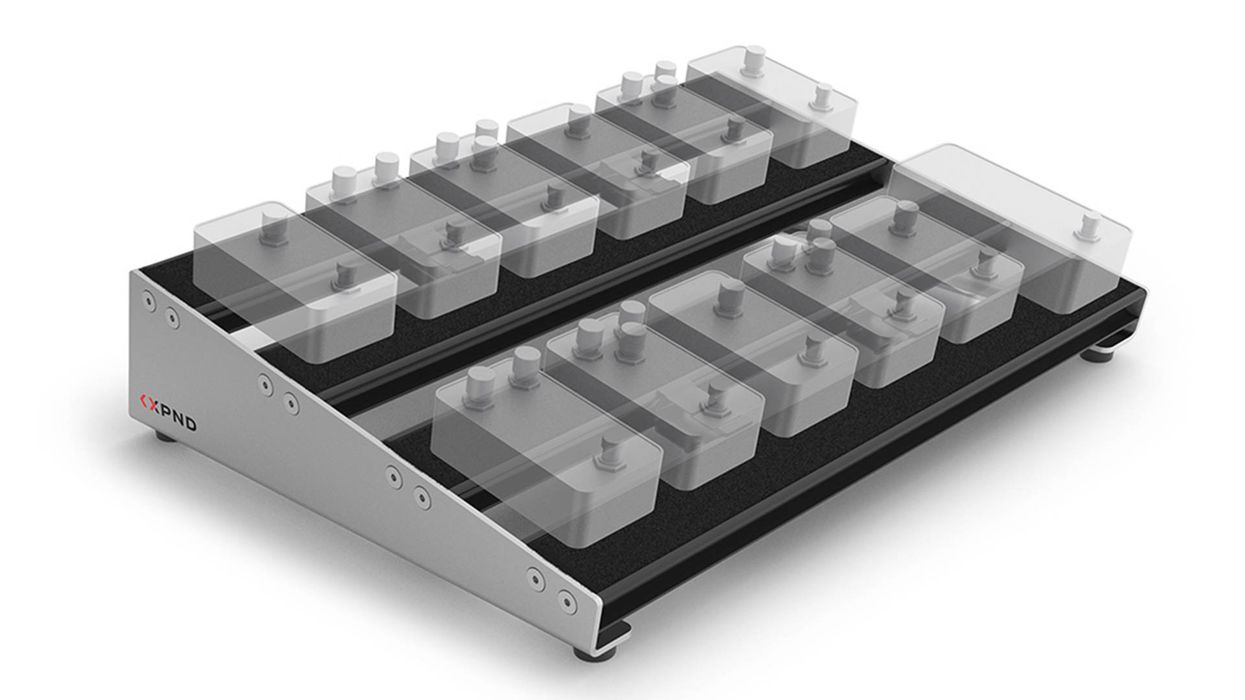

![Rig Rundown: Russian Circles’ Mike Sullivan [2025]](https://www.premierguitar.com/media-library/youtube.jpg?id=62303631&width=1245&height=700&quality=70&coordinates=0%2C0%2C0%2C0)




